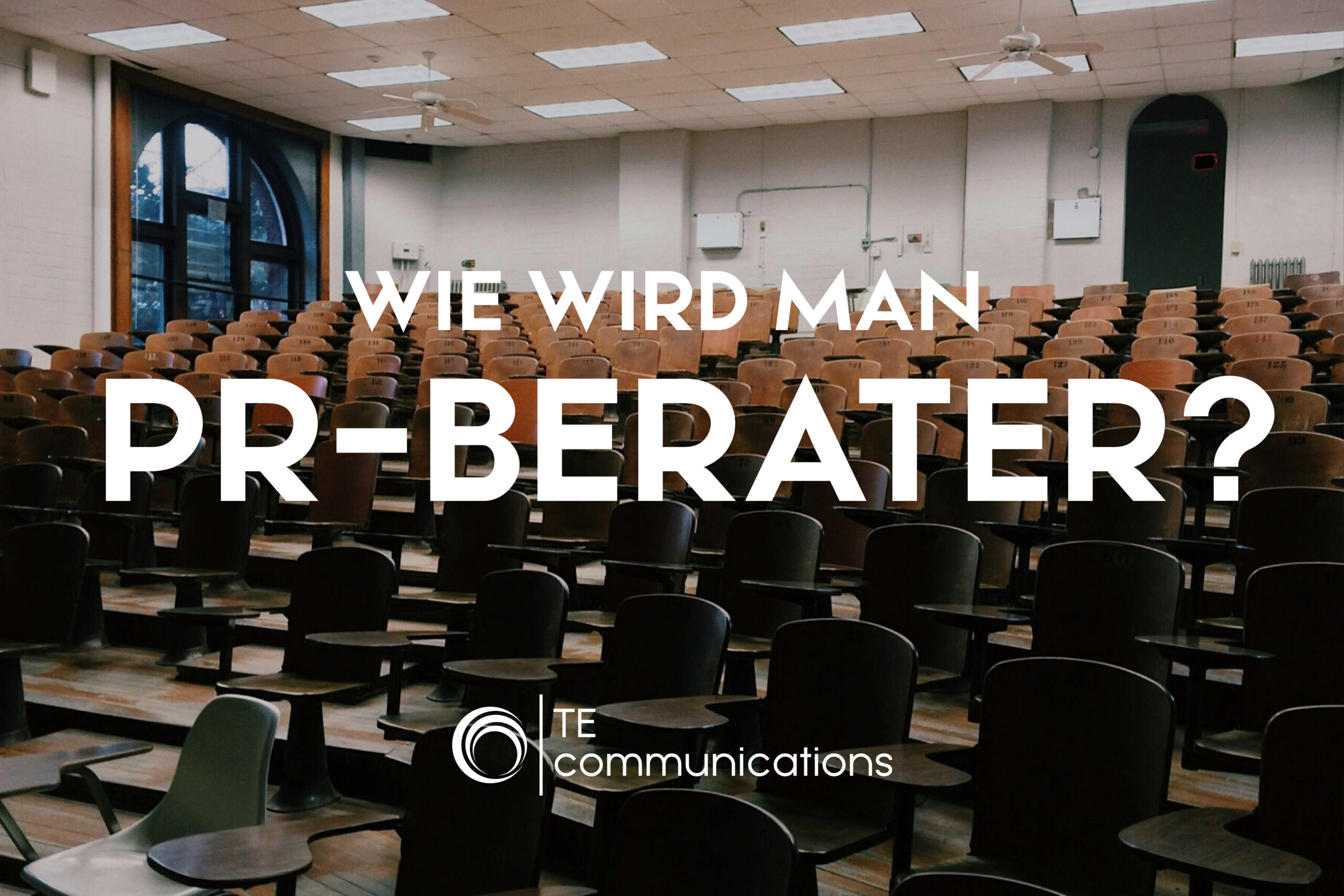Blog post by Matthias Wühle, Head of Newsroom and Senior Consultant at TE Communications.
The PR consultant is not a profession that requires training; at most, it can be approached via a university degree — while the rest is learned through practice. But which degree is most suitable? Traditionally, journalism degree programmes are a good starting point, such as those offered by universities in Leipzig, Munich, or Mainz. Alternatively, one can apply to a journalism school after completing a different degree, for instance, the Henri Nannen School in Hamburg or the Georg von Holtzbrinck School in Düsseldorf. These institutions are usually linked to a traineeship (Volontariat) at a major newspaper. Many Handelsblatt editors, for example, have a Holtzbrinck qualification on their CVs. Occasionally, former journalists make the transition to PR agencies—moving, so to speak, “to the other side.” However, this remains an exception, as PR agencies act as mediators between their clients and the media, which involves a shift in interests and working methods.
This gap has been increasingly filled by universities of applied sciences (HAW, formerly known as “Fachhochschulen”). These either offer independent media degree programmes – or set corresponding focal points within the framework of other degree programs. A notable example is the private Macromedia University, which operates eight campuses across Germany and claims media studies as part of its “DNA.” However, interesting courses are also available at public universities, though their focus areas can vary significantly.
A comprehensive overview can be found here: https://www.medienstudienfuehrer.de/.
For instance, one can study “Communication Management” within a business administration degree at Mainz University of Applied Sciences. The University of Münster offers a course in “Communication Science,” while Stuttgart’s University of Hohenheim provides a degree in “Strategic Communication Management.” The long-time director of this programme, Claudia Mast, warned as early as 20 years ago about the alarming inflation of related academic offerings (see PRKarriere, 2006). Since then, the number of courses has continued to grow, though so has the demand for highly qualified professionals.
This may also be due to the fact that many market participants – universities, students and companies – are focussing too narrowly. Instead, following the Anglo-Saxon model, there should perhaps be a stronger early emphasis on social science methodology rather than an immediate specialisation in communication. After all, PR agencies employ numerous philosophers, historians, philologists, sociologists, and even musicologists. This raises the question: Are PR training programmes misaligned with market needs? Is demand outstripping supply? Or do PR agencies actually prefer generalists over specialists?
To find an answer, one should look for gaps in education as early as the undergraduate level. As a lecturer in the introductory seminar “Academic Writing,” I try to prepare first-year students to produce a formally correct bachelor’s thesis. This includes identifying relevant topics, formulating research questions, and deriving practical recommendations. One of my favourite (and most widely despised) assignments involves tagging key terms in their own or others’ texts. Many students are alarmed to discover that AI tools like ChatGPT offer little to no help in this task—and can sometimes even lead them astray. I make it clear in my seminar that ChatGPT may be used, just as calculators are permitted in high school maths exams.
However, AI cannot replace reading comprehension—and it never will. This also answers the question of whether ChatGPT could make journalists and PR consultants redundant (No, it cannot). Understanding, producing, and analysing texts are not tasks that can be endlessly replicated; rather, they require that creative part of the brain known as the Default Mode Network (DMN). When we read, we form associations, connect them with prior knowledge, and generate new ideas—hence the Latin root creare (to create), from which the word “creativity” derives. AI cannot even begin to dream of this process, and there is only one way to train it: reading.
When I commute in the morning and, among all the mobile phone and tablet users, I spot just one person reading an actual book (even if it’s a Donald Duck comic), I know: There sits a potential future PR consultant.




